Autonomous vehicles job market race heats up
Tesla, the world’s most famous electric vehicle giant, reported its first-quarter performance on April 20th, with impressive margins and increasing sales. The company detailed revenues of $18.76 billion and $2.86 in earnings per share, up from $10.389 billion in revenue and 93 cents in earnings per share in Q1 2021.
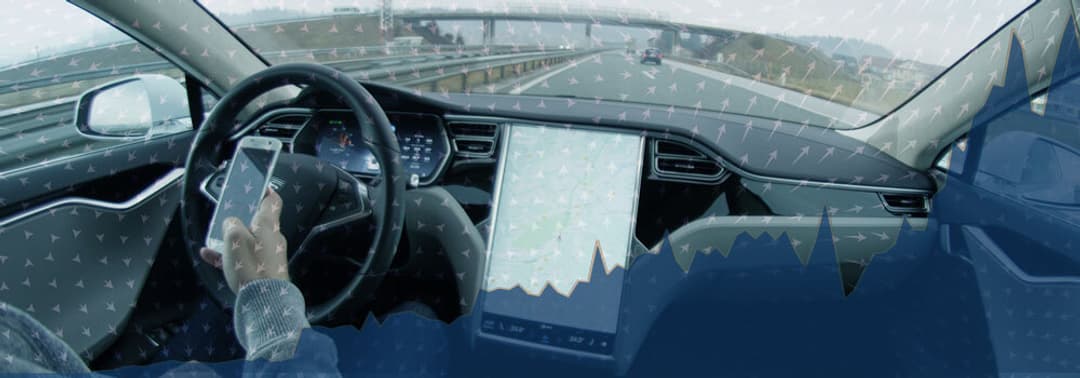
On the company’s earnings call, CEO Elon Musk said the company plans to bring a dedicated robotaxi to market by 2024. The dedicated robotaxi will be highly optimized for autonomy, meaning it would not have a steering wheel or pedals. “I think [it] can be a very powerful product where we aspire to reach volume production in 2024,” Musk said later adding, “I think [the robotaxi] really will be a massive driver of Tesla’s growth.” Tesla’s ambition to expand its presence in the autonomous vehicles (AV) industry is also reflected by its job listings.
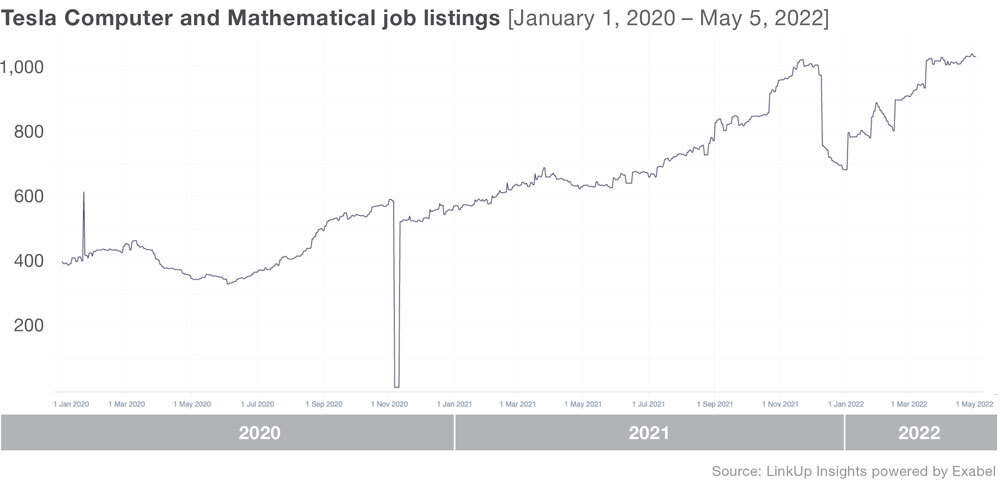
According to LinkUp job data, in January 2021, Tesla had roughly 400 job postings in Computer and Mathematical occupations. That number had risen to over 1,000 by the end of April, a 250 percent increase. The trend of newly created autonomy-specific jobs is also accelerating over the past 3 years.
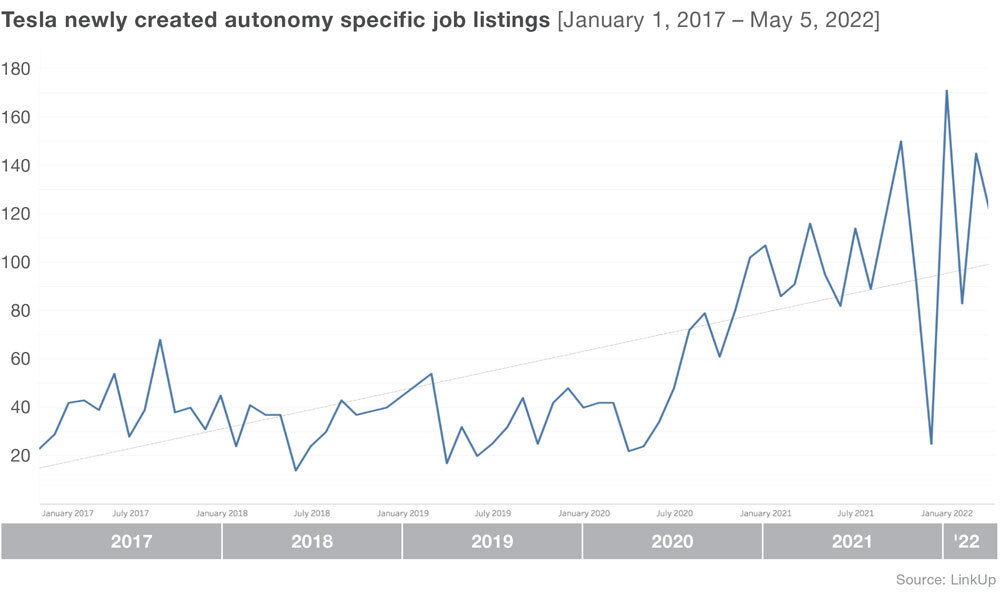
Driven by the stunning growth of e-commerce and increasing demand for rapid home deliveries, various tech and auto firms are injecting billions of dollars into autonomous driving technologies over the past couple of years. The partnerships, collaborations, and investments toward developing autonomous vehicles (AV) have increased significantly in the automotive sector. As the AV industry continues to expand, its recruiting needs are growing, with a marked increase beginning in April 2020.
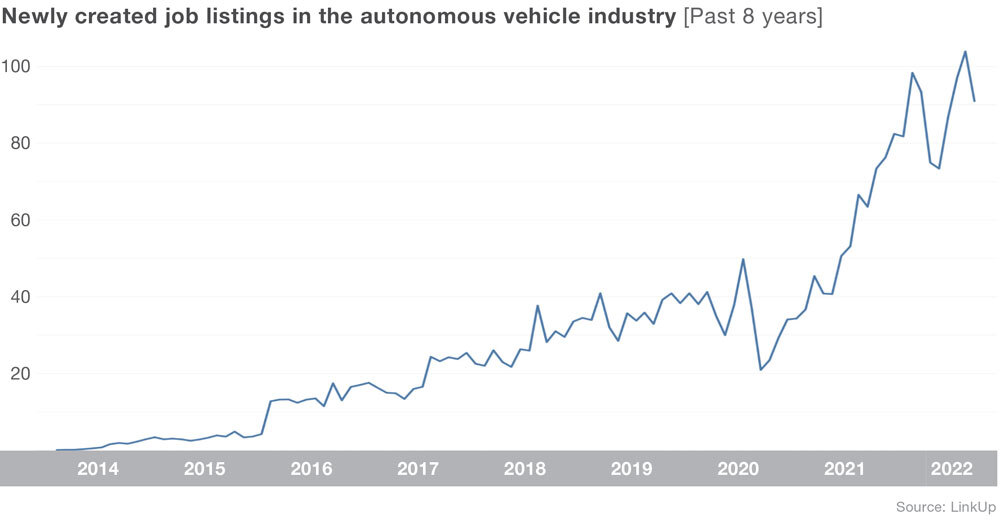
Longstanding players in the automotive space, like General Motors and Ford, and tech titans like Alphabet and Amazon, have all made acquisitions and investments into the AV space. General Motors acquired Cruise Automation in 2016, Ford co-owns Argo AI with Volkswagen, Alphabet started what would become Waymo in 2009, and Amazon bought Zoox in 2020.
While Tesla has become one of the global leaders in electric vehicle production, it is still playing catch-up in the fully autonomous vehicles industry. So it is not surprising to see Tesla has an aggressive goal to attract autonomous driving technology talents. Compared to these four AV companies, it had the second highest number of new jobs for this area in April.
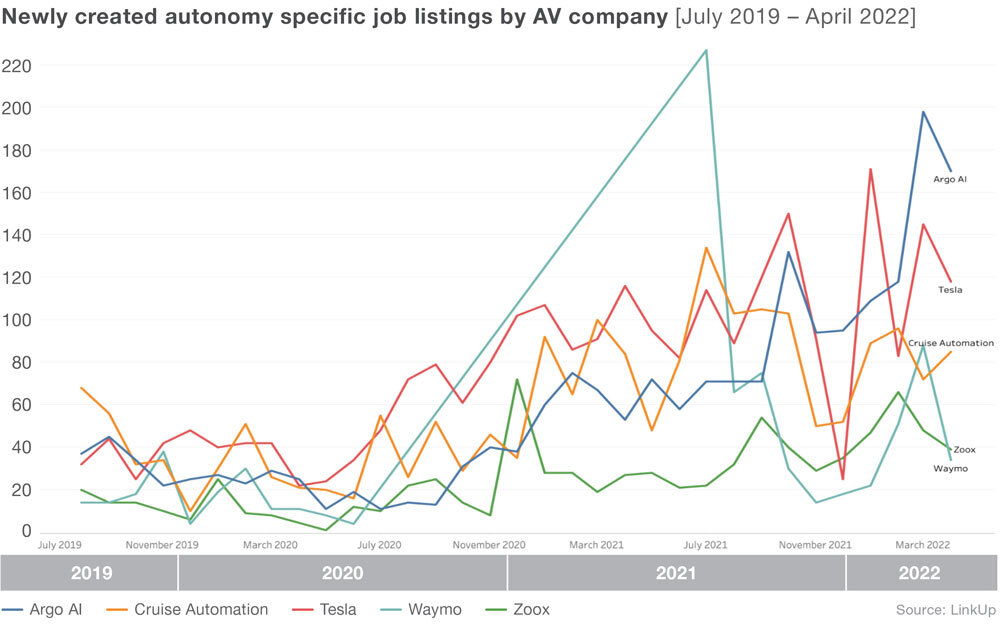
Looking at these four AV companies, except for Cruise Automation, all others have stronger hiring demands now than they did nine months ago.
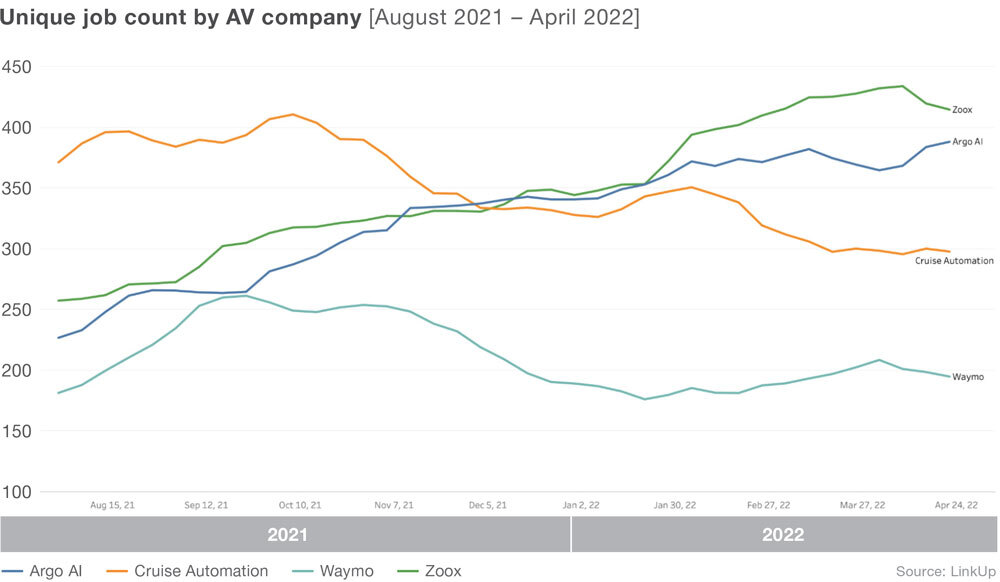
Since September 2021, Cruise Automation has reduced its hiring, while the stock of its parent company, General Motors, has fallen since the beginning of the year.
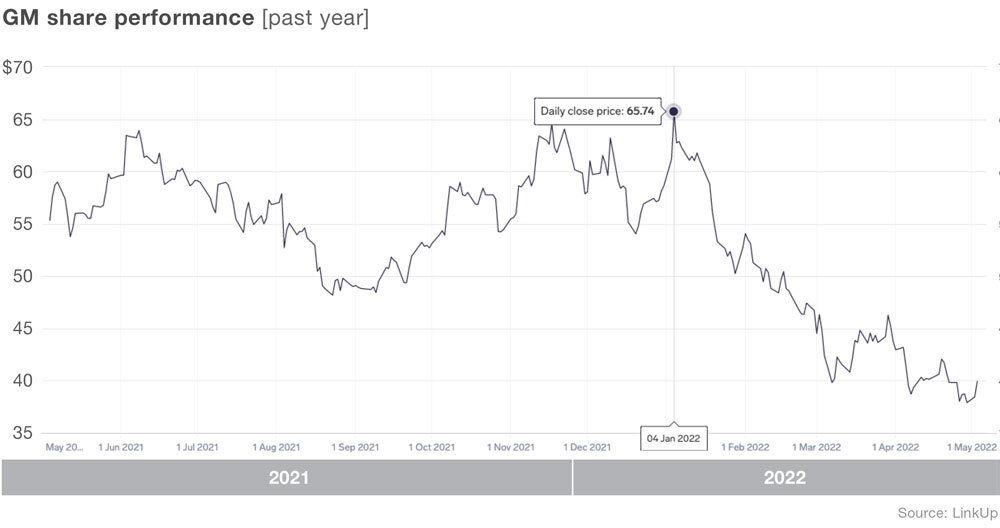
Morgan Stanley downgraded the company’s stock, citing the company’s refusal to split its Ultium battery, electric vehicle, and autonomous-driving operations, as well as the fact that the commercialization of its Cruise Automation is taking longer than projected.
Looking at the job occupations and locations, not surprisingly, these four AV companies have a high demand for Computer and Mathematical occupations, followed by Engineering and Management occupations.
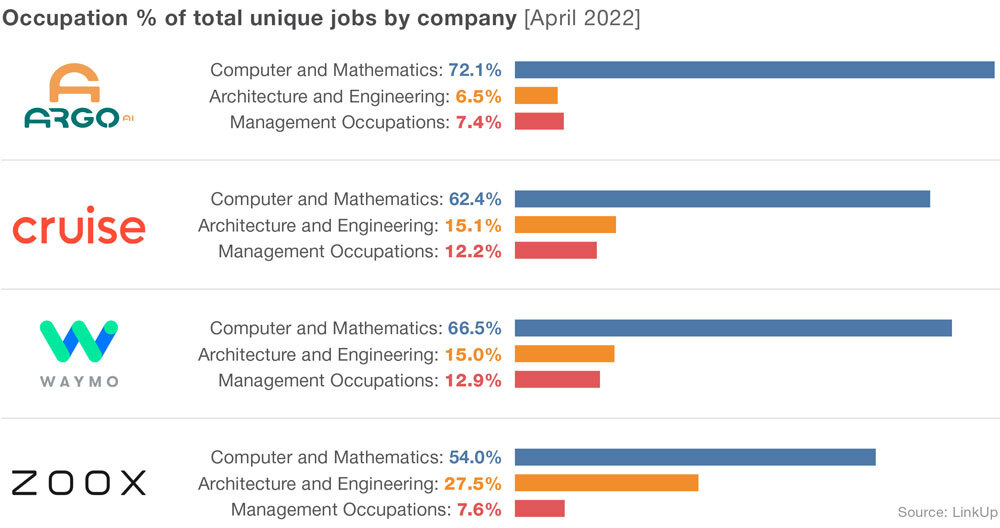
California is the recruiting hotspot, followed by Pittsburgh, which is dominated by Argo AI.
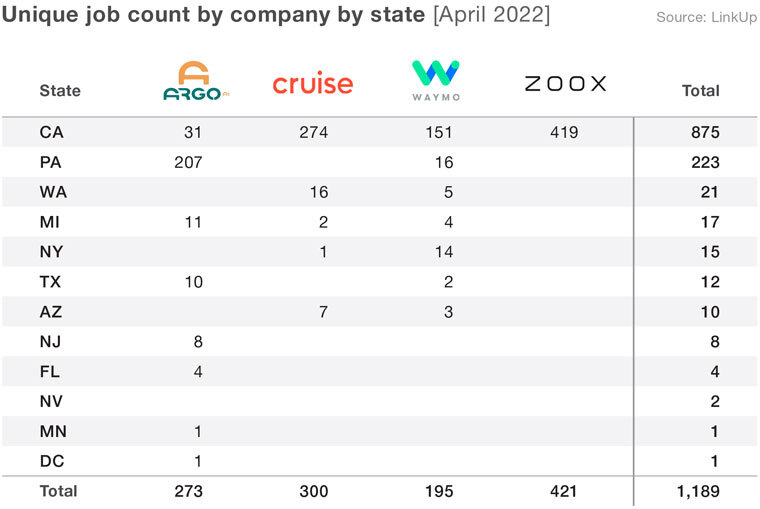
The race to commercialize autonomous driving technology is becoming more competitive as the technology matures. Those who made it to the finish line would be rewarded with some substantial monetary gains. Alphabet’s Waymo began offering driverless taxi services in Phoenix in 2020. According to CNBC, Chinese internet giant Baidu and autonomous vehicle company Pony.ai received permits on April 27th to provide driverless ride-hailing services to the public on open roads in Beijing.
We have a tendency to think of autonomous vehicles as just being about self-driving cars. But it’s really about mobility, about the way cities work and how we live.
Autonomous vehicles will disrupt every industry that relies on the Transportation sector for a living and those industries that are not directly dependent on the Transportation sector such as Accommodation and Food Services, Legal, and Insurance industries, etc. Companies will need to create innovative approaches to stay afloat to survive the upcoming disruption that autonomous vehicles will bring. As for job security, there is no doubt that autonomous vehicles will cause a commotion for those working as drivers. Over the next 20 years, employers, communities, local governments, and educational institutions will need to work together to figure out new roles for those workers and equip them with the skills they need to fill the new jobs.
Insights: Related insights and resources
-
Blog
04.20.2022
Netflix stock falls, following their jobs trend
Read full article -
Blog
03.01.2022
Shopify’s post-earnings drop worries investors, but it may not be all bad news
Read full article -
Blog
02.09.2022
Amazon earnings from a job posting perspective
Read full article -
Blog
01.11.2022
ESG investing on the rise
Read full article -
Blog
10.11.2021
EVs steering Ford’s future
Read full article -
Blog
12.15.2020
Tesla jobs are soaring too
Read full article
Stay Informed: Get monthly job market insights delivered right to your inbox.
Thank you for your message!
The LinkUp team will be in touch shortly.
